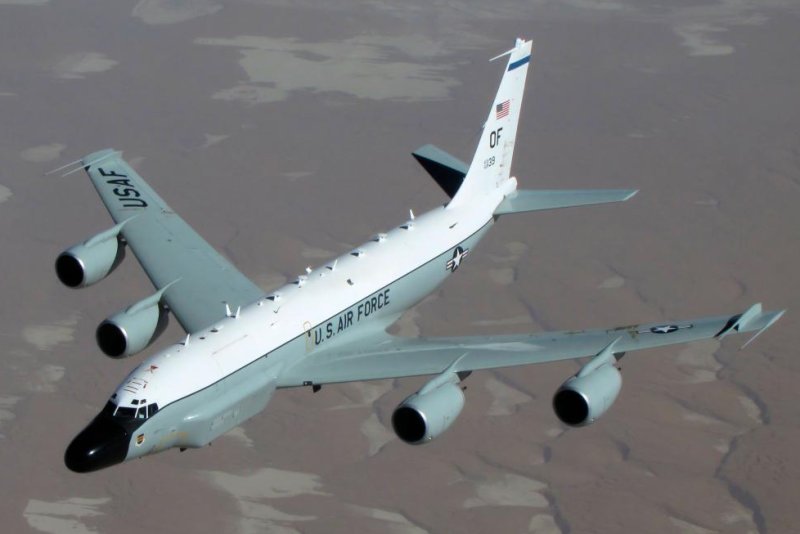The RC-135W, or Rivet Joint, was deployed to the Korean Peninsula on Monday, according to an aviation tracker. Photo courtesy of U.S. Department of Defense
Dec. 2 (UPI) -- Multiple U.S. spy planes have flown over the Korean Peninsula since last week, when North Korea tested short-range missiles near its border in violation of a 2018 pledge.
Reports of the flights of U.S. reconnaissance planes, including a U.S. Air Force RC-135W spy plane, came the same day a U.S. air force pilot was injured while landing an F-16 fighter jet at Kunsan Air Base in South Korea on Monday, Yonhap reported.
Aircraft Spot, an aviation tracker, published to Twitter maps and data of U.S. spy plane movements over South Korea, South Korean newspaper Hankook Ilbo reported Monday.
"USAF RC-135W 62-4125 TORA21 on task over the Korean Peninsula at 31,000 feet," Aircraft Spot tweeted.
On Saturday, Aircraft Spot tweeted, "USAF U-2S 80-1069 SHADE01" was "on task over the Korean Peninsula at 50,000 feet."
The RC-135W, or Rivet Joint, is a powerful reconnaissance aircraft capable of near real time on-scene intelligence collection and dissemination capabilities, according to the U.S. Department of Defense. The plane's crew can detect, identify and geolocate signals through the electromagnetic spectrum.
The Rivet Joint's deployment came about two days after the U.S. Air Force flew the high-altitude spy plane U-2S, or Dragon Lady.
The U.S. Air Force also flew an EP-3E Aries II spy plane, an E-8C Joint Surveillance Target Attack Radar System aircraft and the RC-135V on Wednesday and Thursday, according to the Hankook Ilbo.
Washington and Seoul have pledged to maintain a "combined defense posture" against threats, but the two sides have yet to reach an agreement over defense burden sharing.
South Korean newspaper Segye Ilbo reported Monday Seoul officials left for Washington ahead of a round of talks on the Special Measures Agreement.
The most recent negotiations in Seoul ended abruptly amid U.S. demands for as much as $5 billion in South Korea's share of annual defense costs.















